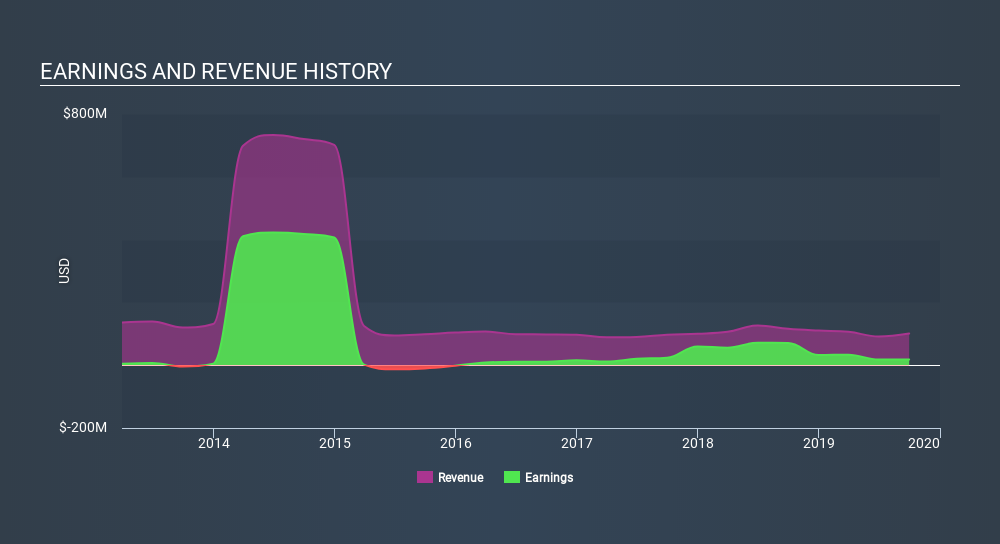
Anyone researching The St. Joe Company (NYSE:JOE) might want to consider the historical volatility of the share price. Modern finance theory considers volatility to be a measure of risk, and there are two main types of price volatility. The first type is company specific volatility. Investors use diversification across uncorrelated stocks to reduce this kind of price volatility across the portfolio. The other type, which cannot be diversified away, is the volatility of the entire market. Every stock in the market is exposed to this volatility, which is linked to the fact that stocks prices are correlated in an efficient market.
Some stocks mimic the volatility of the market quite closely, while others demonstrate muted, exagerrated or uncorrelated price movements. Some investors use beta as a measure of how much a certain stock is impacted by market risk (volatility). While we should keep in mind that Warren Buffett has cautioned that 'Volatility is far from synonymous with risk', beta is still a useful factor to consider. To make good use of it you must first know that the beta of the overall market is one. A stock with a beta greater than one is more sensitive to broader market movements than a stock with a beta of less than one.
View our latest analysis for St. Joe
What JOE's beta value tells investors
With a beta of 1.01, (which is quite close to 1) the share price of St. Joe has historically been about as voltile as the broader market. If the future looks like the past, we could therefore consider it likely that the stock price will experience share price volatility that is roughly similar to the overall market. Beta is worth considering, but it's also important to consider whether St. Joe is growing earnings and revenue. You can take a look for yourself, below.

Could JOE's size cause it to be more volatile?
With a market capitalisation of US$1.2b, St. Joe is a small cap stock. However, it is big enough to catch the attention of professional investors. It takes less capital to move the share price of small companies, and they are also more impacted by company specific events, so it's a bit of a surprise that the beta is so close to the overall market.
What this means for you:
St. Joe has a beta value quite close to that of the overall market. That doesn't tell us much on its own, so it is probably worth considering whether the company is growing, if you're looking for stocks that will go up more than the overall market. This article aims to educate investors about beta values, but it's well worth looking at important company-specific fundamentals such as St. Joe’s financial health and performance track record. I highly recommend you dive deeper by considering the following:
- Financial Health: Are JOE’s operations financially sustainable? Balance sheets can be hard to analyze, which is why we’ve done it for you. Check out our financial health checks here.
- Past Track Record: Has JOE been consistently performing well irrespective of the ups and downs in the market? Go into more detail in the past performance analysis and take a look at the free visual representations of JOE's historicals for more clarity.
- Other High-Performing Stocks: Are there other stocks that provide better prospects with proven track records? Explore our free list of these great stocks here.
If you spot an error that warrants correction, please contact the editor at editorial-team@simplywallst.com. This article by Simply Wall St is general in nature. It does not constitute a recommendation to buy or sell any stock, and does not take account of your objectives, or your financial situation. Simply Wall St has no position in the stocks mentioned.
We aim to bring you long-term focused research analysis driven by fundamental data. Note that our analysis may not factor in the latest price-sensitive company announcements or qualitative material. Thank you for reading.
About NYSE:JOE
St. Joe
Operates as a real estate development, asset management, and operating company in the United States.
Questionable track record with imperfect balance sheet.
Similar Companies
Market Insights
Community Narratives



